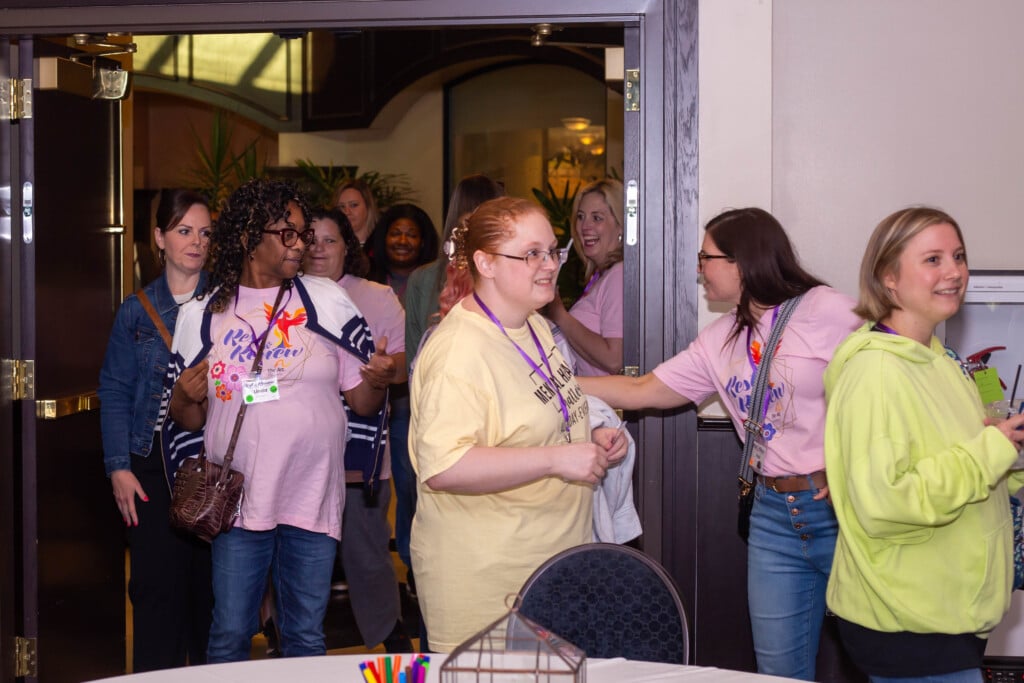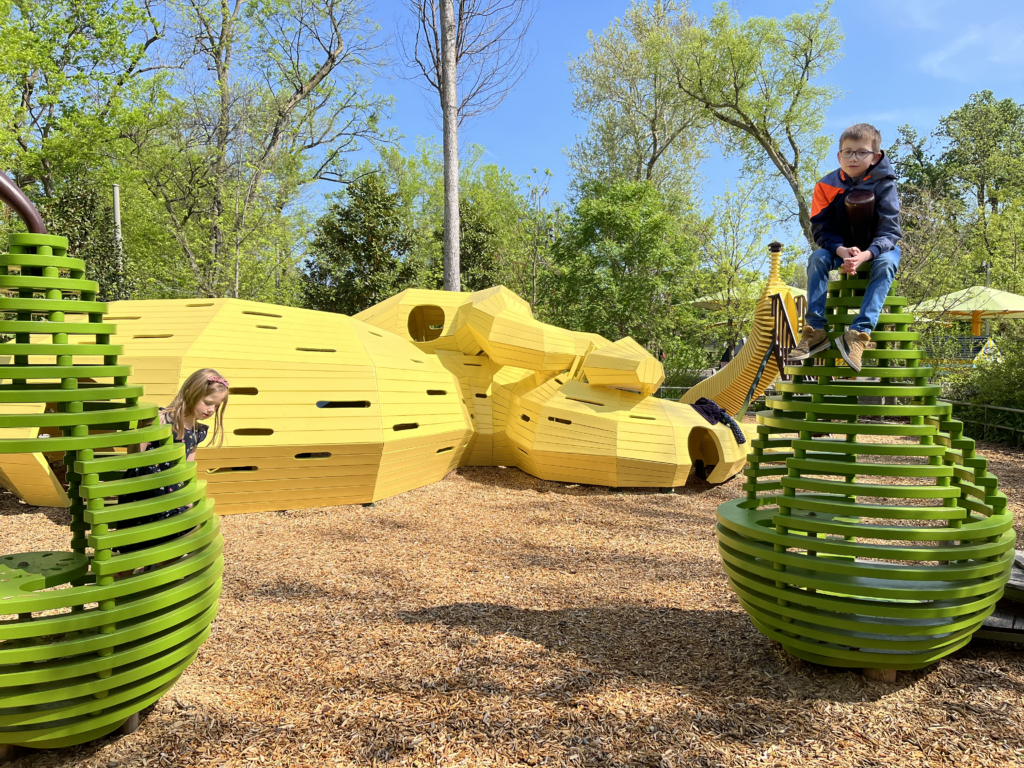Finding Hope in the Village: How The Arc’s Respite Retreat Offers Lifelines to Exhausted Caregivers

They say it takes a village to raise a child, but when your child has autism or other disabilities, that village can feel non-existent, leaving parents stranded in a world of constant vigilance, bone-deep exhaustion, and relentless burnout. For thousands of families in Oklahoma navigating special needs caregiving, the isolation can be overwhelming. It’s not that people don’t want to help—it’s that the overwhelming demands of caring for a child with disabilities often drive away even the most well-intentioned supporters. Yet in a weekend retreat at the Artesian Hotel in Sulphur, 40 mothers discovered something remarkable: their village had been there all along, waiting to be found.
The Hidden Crisis in Our Community
Behind closed doors throughout Tulsa and across Oklahoma, a silent crisis unfolds daily. Research shows that the caregiving crisis is real – and growing.
- 59% of caregivers report being physically, emotionally, or mentally exhausted
- 40% experience serious depression or anxiety
- Many have had to leave the workforce or take different jobs due to caregiving demands
The reality of caregiving for a child with disabilities extends far beyond typical parenting challenges. It’s a world where simple errands require military-level planning, where school calls interrupt work with alarming frequency, and where parents live on constant alert, reading behavioral cues with the precision of bomb disposal specialists.
In addition to caring for the child, finding resources can also be a full-time job. Parents often face the heartbreaking reality of schools turning their children away, with administrators claiming their programs aren’t equipped to handle certain disabilities. Fighting for basic educational access—sometimes for just a few hours of daily instruction—becomes an exhausting, ongoing battle. The summer months bring particular challenges, as families discover that behaviors deemed “too disruptive” for regular programming are simultaneously considered “not severe enough” to qualify for specialized summer services, leaving children without crucial continuity of care and education.
Accessing support services also reads like a bureaucratic maze. Families wait years for Developmental Disability Services vouchers, only to learn they do not qualify. For working parents finding summer activities that can properly deal with their children’s special needs can feel impossible, causing them to struggle to support their family while also caring for their child.
Marriages strain under constant pressure, with divorce rates nearly double those of families with typically developing children. Extended family members often retreat when faced with the intensity of needs. Friends disappear, unable to understand why traditional parenting advice fails. This doesn’t happen due to people not caring, but due to the inability to understand something they have been fortunate enough to not experience.
What these families need most isn’t pity or unsolicited advice – they need recognition that their daily reality requires a different playbook. Most importantly, they need connection with others who truly “get it”—who understand that sometimes giving in to demands isn’t weakness but survival.
This is where The Arc of Oklahoma’s Rest and Renew retreat becomes transformative. The organization recognized something crucial: before caregivers can effectively care for their children, they must first care for themselves.
A Weekend of Restoration
The 40 women who gathered at the Artesian Hotel arrived as strangers but shared an immediate, unbreakable bond. They were members of a club no one wants to join, united by experiences outsiders struggle to comprehend. For many, it was the first time in years they’d been in a room full of people who didn’t need explanations.
The Arc understood these women needed more than time away—they needed to feel valued and celebrated. Every minute was planned with intention, designed to help participants remember what it felt like to be treated as queens rather than servants to endless demands. Simple acts became revolutionary: uninterrupted conversations, sleeping through the night, making decisions based solely on personal preferences.
Most importantly, the retreat provided validation from peers who had walked the same difficult path. In sharing stories, these mothers found their voices again. In listening to others, they discovered they weren’t alone in their struggles or their strength.
The success of The Arc’s retreat offers important lessons for our broader community. Supporting families affected by disabilities isn’t just right—it’s an investment in our entire community’s health and strength.
We can educate ourselves about disabilities and family challenges. We can advocate for inclusive programs in schools and community organizations. We can offer practical support—providing meals during difficult times or simply listening without judgment. Businesses can implement truly flexible policies recognizing the unpredictable nature of special needs caregiving.
Most importantly, we can change the narrative around disability and caregiving. Instead of viewing these families as burdens, we can recognize them as sources of strength, resilience, and wisdom. The mothers who attended The Arc’s retreat aren’t victims—they’re warriors who’ve developed extraordinary skills in advocacy, problem-solving, and unconditional love.
The Lasting Impact
The women who returned from that weekend carried renewed hope, strengthened resolve, and knowledge that they were part of a community that understood and valued them. They had found their village.
The Arc of Oklahoma’s Rest and Renew retreat represents more than a successful program—it’s a model for how communities can support their most vulnerable members. For families still struggling in isolation, programs like this offer a lifeline, providing proof that support exists and no one has to face these challenges alone.
The village may sometimes feel non-existent, but it’s there—scattered across our communities, waiting to be connected. Organizations like The Arc are doing vital work bringing these villages together. In supporting these efforts, we all become part of the village and create a community where every family can find the support, understanding, and hope they need to thrive.
To learn more about The Arc of Oklahoma and their programs, visit thearcok.org or call 888-910-6459. Because when we support the village, the village supports us all.




